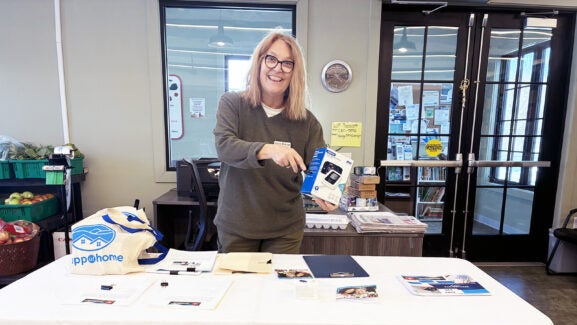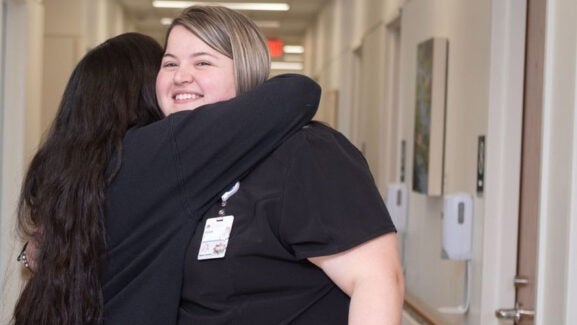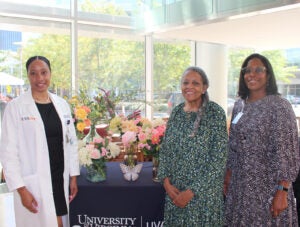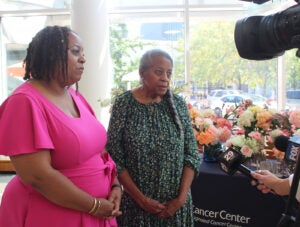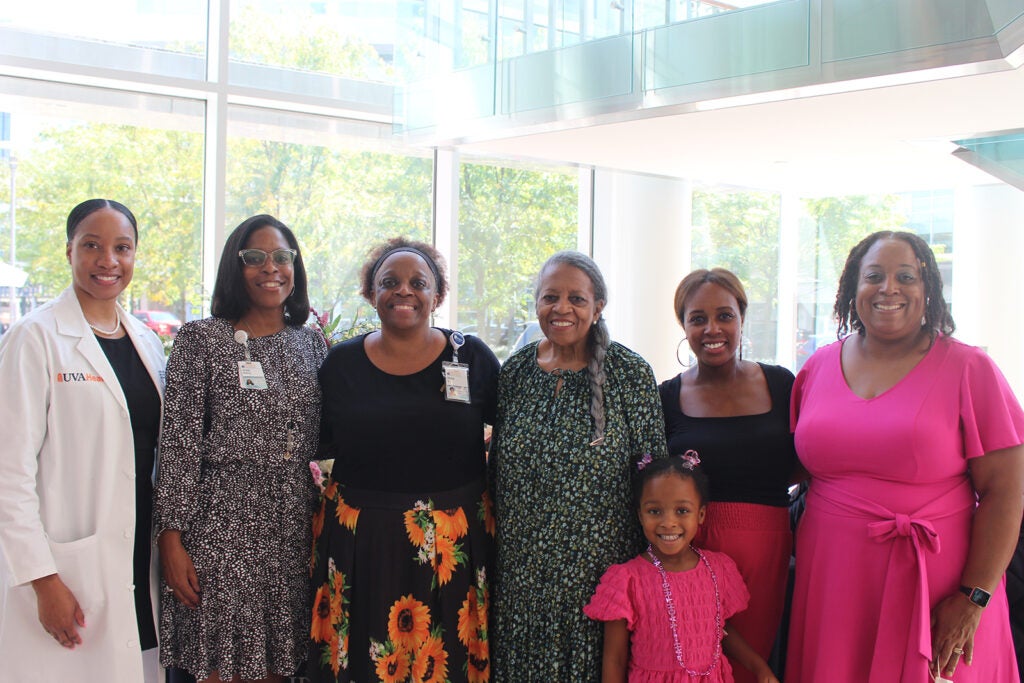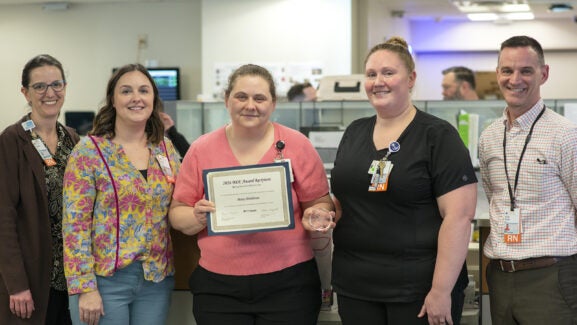
Second Opinion Cancer Diagnosis Saves the Life of Kathleen Scott
The newly found partnership between minority- and woman-owned Agape Love Events and UVA Cancer Center Office of Diversity, Equity, and Inclusion and Oncology Service Line provides us with the opportunity to not only beautify patient-facing spaces across the Emily Couric Clinical Cancer Center and Breast Care Center but allows us to remain steadfast in taking proactive measures to amplify diversity.
Marquita Taylor, PhD, Associate Cancer Center Director for Diversity, Equity, and Inclusion says, “Diversity helps to drive innovation, improved reputation, improved trust, better access to healthcare, and improved healthcare quality, compassion, equity, and consistent care, all a part of our core mission here at the UVA Cancer Center.”
Blessing in Disguise
Sheila Boling, Head & Neck Surgery Coordinator, approached Taylor, who at the time was the new Associate Cancer Center Director for Diversity, Equity, and Inclusion, about the need to beautify the patient-facing spaces across the Emily Couric Clinical Cancer Center and Breast Care Center. After nearly a year, Taylor partnered with Blake Herring, Administrator for the Cancer Service line, to support this beautiful installation. The owner and operator of Agape Love Events, Jasmine Lowery, provided floral arrangements on behalf of her grandmother and cancer survivor, Kathleen Scott. What Jasmine did not realize was that her grandmother received treatment at UVA Cancer Center.
Kathleen Scott’s Testimony
Scott spoke highly of the physicians and cancer care team who cared for her. “The cancer care I received here saved my life. I was misdiagnosed in West Virginia and my daughter Kathleen Sullivan saw the information and knew the original diagnosis could not be correct.”
Sullivan and Scott’s husband, Howard, continued to advocate on her behalf, saying, “You are going to get treatment immediately.” Due to her daughter’s proximity to UVA, they chose UVA Health for Kathleen’s cancer care.
Scott states, “God placed me here. Christiana Brenin, MD, examined me and said, 'You have the worst type of cancer, triple negative stage 4 breast cancer.' Everyone lifted me up and gave me joy during a time of sadness and I would recommend that everyone come here. What I see today is faces and it is just awesome.”
Sullivan says, “Thank God for the wonderful and great staff that took care of my mother during our trips from West Virginia. The great part about this story is that she is 10 years cancer free!”
Q&A with Leadership and Kathleen Scott’s Oncologists
Why did you decide to go into cancer care?
Dr. Leigh Cantrell: I, and many other oncologists, decided to go into cancer care so that we could help patients just like Mrs. Scott. Her story, 10 years disease-free, is inspiring for all of us. She, and patients like her, are the reason we are here.
Dr. Patrick Dillon: Like many people, I have several close family members who have battled cancer, so there is a personal motivation to improve both cancer care and cancer research. I remain driven by the hopes and needs which I witness firsthand among patients daily.
In what ways is the Cancer Center addressing health disparities in diverse populations?
Dr. Leigh Cantrell: We are actively addressing health disparities in diverse populations across the area we serve. We are providing outreach to patient communities, participating in research on health disparities and, of course, offering outstanding care to all patients.
Dr. Patrick Dillon: I do know from being involved that the Cancer Center has a standing outreach to the local Hispanic community with training and support for the Promotores de Salud program. I have given a few teaching sessions to that group over the years. I know that there are three outreach navigators led by Keryi Lopez-Godoy and I am aware that the Cancer Center supports screening outreach programs for breast, lung, prostate, skin, and other cancers. Finally, the Cancer Center helps to fund a mobile mammography bus and a mobile lung cancer CT screening bus, which travel to underserved and diverse areas of our state.
Scott spoke highly of the physicians and team who cared for her. What does it mean to provide compassionate care?
Dr. Leigh Cantrell: Compassionate care is giving patients the care that they and their family need, there isn’t a one size fits all. We strive to meet patients where they are and to think of them like our family members.
Dr. Patrick Dillon: To me, compassionate care means receiving care from another person who can understand the human emotions and strains of dealing with an illness. Compassion should include the establishment of a safe and open dialogue space where the physical, mental, emotional, and spiritual aspects of illness can be addressed without fear or shame. Addressing cancer compassionately therefore involves more than just drugs and scalpels; it often also involves counseling, listening, and empathy.
Latest News

